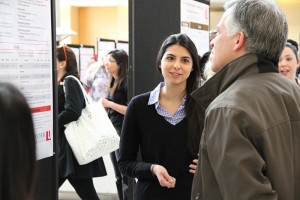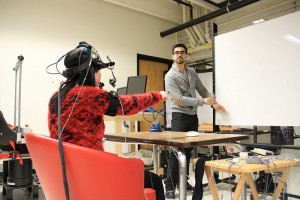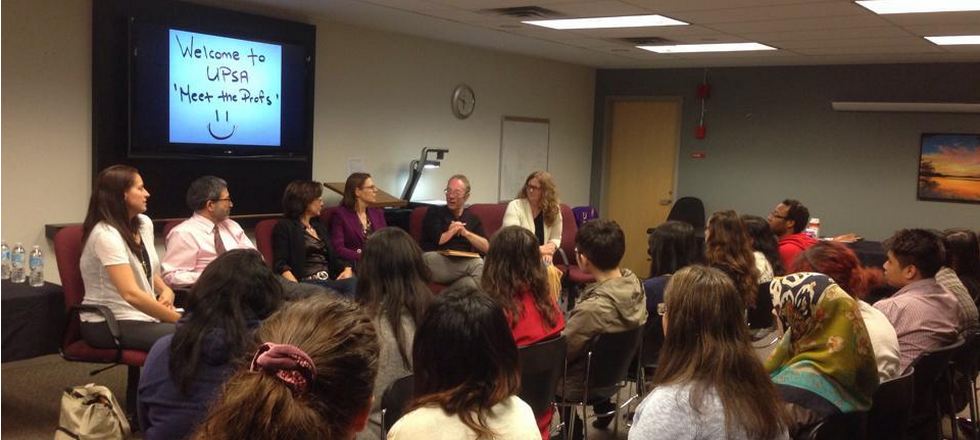What is Psychology?
Psychology is the scientific study of mind and behaviour viewed from social, developmental and biological perspectives.
Why Study Psychology at York?
- York’s Psychology program ranks among the top programs for psychology in Canada and the world according to the QS World University Rankings, 2015
- More course selections than at any other Canadian university offering tremendous choice to help students determine their study and career interests
- Evening, online and blended courses for maximum study flexibility
- Award winning professors who are internationally recognized teachers and researchers actively working with community partners to address challenges such as improving services for children with Autism Spectrum Disorder; advising schools and government on ways to prevent or stop bullying; working with NASA astronauts on vision and perception in space and much more
- A great student experience in a supportive environment with academic advising, peer mentoring and student clubs
- Career workshops in Psychology with York’s Career Centre to help you prepare for life after graduation
Psychology program at York
Students can choose between a Bachelor of Arts (BA) (90 or 120 credits) or a Bachelor of Science (BSc) (90 or 120 credits) degree. In Introductory Psychology 1010, students in both degree options will be exposed to the diversity of human behavior and mental processes. Areas and topics that are covered include: personality, memory, learning, intelligence, psychological disorders, the biological basis of behaviour, perception, motivation, cognition, child development, abnormal and social psychology.
Our strength comes from the diversity and breadth of the interests we explore ranging from studies of infancy to mental health disorders of childhood through the challenges of adolescence to adulthood and old age. From bilingualism to perfectionism; from pain to resilience; from how we see to how we are seen; from studies in outer space to inner space; and from what enhances empathy to how emotional-focus can help us change.
In the BA, your Psychology education is complemented with exposure to the humanities and social sciences, while the BSc allows you to study Psychology with training in the physical and life sciences, including neuroscience.
Our Specialized Honours Psychology Program (both BA and BSc) provides advanced training in research methods, statistical analysis, as well as guaranteed one-on-one thesis supervision and prepares students wishing to go on to graduate school.
For more information on the Psychology program at York, visit the Psychology Current Student website or contact the Department of Psychology at psyc@yorku.ca or at (416) 736-5117
Opportunities for Students
Students have the opportunity to apply their classroom learning through experiential education, such as analyzing brain imagery to understand the biological basis of behaviour in our fMRI lab; exploring the relationship between vision, perception and psychology in our Centre for Vision Research; or out in the community in schools in the fourth year Atypical Development course looking into disorders of childhood and adolescence based on current research; or as part of the fourth year Advanced Community Based Applied Research course working with community partners such as the Centre for Addiction and Mental Health, the Black Creek Community Health Centre and others to address community partner needs in broad areas within health and social psychology. Students integrate psychological theories and methods with the design, data collection, analysis, presentation and write up of applied research projects.

Exploring the biological basis of behavior in the fMRI lab
The York/Seneca Certificate in Rehabilitation Services prepares undergraduate students to work in a variety of rehabilitation fields by integrating academic training in health sciences, and practical field experience.
Through work in class or in the lab, community experience and independent research projects such as the undergraduate research poster day, students apply what they learn in class in real world settings, as well as acquire valuable transferable skills sought by employers including critical thinking, problem solving, collaboration, communication and presentation skills.
Academic advisors in the Psychology Undergraduate Office and in our Office of Student and Academic Services are ready to assist you to plan your courses of study so that you are on track toward your career path.
The Undergraduate Psychology Students Association is a great way to meet new friends and get involved.
Careers in Psychology
Career paths open up with a degree in Psychology because there are so many applications for the knowledge and skills that Psychology graduates acquire. Understanding human behaviour and what motivates people is a highly valued skill in multiple sectors including the non-profit, private, education and social services sectors, as well as in government, law and research institutions. Below is a sampling of some of the many careers that York Psychology graduates have gone on to. Check out their individual stories.
- Applied Behaviour Analyst*
- Child and Youth Worker
- Community Justice Worker
- Corrections Officer
- Counsellor* (schools, substance abuse, bereavement, immigration)
- Developmental Disabilities Services Worker
- Early Childhood Educator
- Educational Administrator
- Family Therapist
- Human Resources Specialist
- Labour Relations Specialist
- Lawyer*
- Marketing Manager
- Mediator
- Mental Health Therapist
- Policy Advisor
- Professor*
- Psychologist*
- Public Relations Specialist
- Rehabilitation Case Manager
- Research Assistant
- Social Worker*
- Speech Language Pathologist
- Teacher*
*With further postgraduate study






